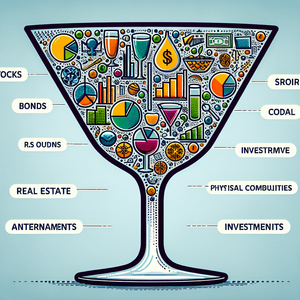Mind Over Matter: Aaron Rodgers and Mental Resilience

Mental resilience is the ability to cope with stress, adversity, and pressure. For athletes, this means maintaining focus and composure, especially in high-pressure situations. Aaron Rodgers, arguably one of the most gifted quarterbacks in NFL history, exemplifies this quality. His career has been punctuated by moments of incredible pressure, and how he has responded to these challenges provides valuable insights into the importance of mental strength. One significant example of Rodgers' mental resilience came during the 2010 NFL playoffs. After a tumultuous regular season marred by a mid-season injury, he led the Green Bay Packers to a Super Bowl victory. The pressure was immense, not only from the opponent but also from the expectations of fans and media. Rodgers' calm demeanor and strategic thinking during critical moments demonstrated his mental fortitude. He executed crucial plays with precision, leading his team to victory against the Pittsburgh Steelers. This ability to remain focused and confident, even when the stakes were highest, is a testament to his psychological resilience.
The Role of Visualization and Preparation
One of the strategies Rodgers employs to enhance his mental toughness is visualization. Visualization involves mentally rehearsing plays and scenarios before they occur, creating a mental blueprint that helps athletes perform under pressure. Studies in sports psychology suggest that visualization can significantly enhance performance, and Rodgers has spoken about its impact on his game. He often visualizes not just plays but also how he will react to various game situations, preparing himself mentally for any eventuality. Additionally, meticulous preparation is vital to Rodgers' success. His study habits and understanding of the game allow him to anticipate defenses and react accordingly. This preparation not only boosts his confidence but also reduces anxiety during games. By being well-prepared, Rodgers can focus on executing plays instead of worrying about potential mistakes. His commitment to preparation is evident in his film study and practice routines, which ensure that he enters each game with the knowledge necessary to outsmart opponents.
Overcoming Adversity
Rodgers' career has not been without its challenges. From being drafted in the first round and initially sitting on the bench to facing criticism during tough seasons, his journey has been filled with obstacles. However, his ability to overcome these hurdles showcases his resilience. For instance, after a disappointing playoff exit in 2014, Rodgers came back the following season with a renewed focus, leading the Packers to a remarkable 15-1 record and earning the MVP award. This rebound exemplifies his mental toughness and determination to improve. His experience illustrates a key aspect of mental resilience: the ability to learn from setbacks. Instead of allowing failures to define him, Rodgers uses them as stepping stones toward improvement. This mindset is crucial for athletes in all sports, demonstrating that setbacks can serve as valuable learning experiences rather than insurmountable obstacles. For example, after struggling in the NFC Championship Game against the Seattle Seahawks in 2015, Rodgers reflected on his performance, identifying areas for improvement, which further fueled his growth as a player.
The Impact of Mindset on Performance
Rodgers' mental resilience extends beyond individual games; it influences his leadership and the overall team dynamic. A quarterback's mindset can set the tone for the entire team, and Rodgers' calm, focused approach helps instill confidence in those around him. His ability to rally teammates during challenging moments is indicative of a strong leader, and this psychological edge can often be the difference between victory and defeat. In pivotal moments, such as the 2016 playoff game against the Dallas Cowboys, Rodgers' poise allowed him to orchestrate a game-winning drive, showcasing not only his skills but also his influence on the team's morale. Moreover, the mental aspect of the game is increasingly recognized in today's NFL. Teams invest in sports psychologists and mental performance coaches, understanding that mental resilience can significantly affect player performance. Rodgers serves as a prime example of how a strong mindset can elevate an athlete's game. His ability to maintain focus, inspire his teammates, and perform under pressure highlights the growing acknowledgment of mental training as a vital component of athletic success.
Aaron Rodgers' career is a compelling study of mental resilience in professional sports. His ability to thrive under pressure, prepare meticulously, and overcome adversity highlights the importance of psychological strength in achieving success. As athletes and fans alike continue to seek inspiration from his journey, the lessons learned from Rodgers' mental toughness can resonate beyond the football field. In a world where the competition is fierce and the stakes are high, cultivating mental resilience may be the most valuable asset an athlete can possess. As evidenced by Rodgers' career, the mind truly holds the power to influence performance, turning potential into achievement.
Sports Psychologist
Core Responsibilities
Assess athletes' mental strengths and weaknesses to develop tailored mental training programs.
Conduct individual and group sessions focused on improving mental resilience, coping strategies, and performance under pressure.
Collaborate with coaches and trainers to integrate psychological principles into training regimes and athlete development.
Required Skills
Advanced degree in psychology, sports psychology, or related field.
Strong understanding of mental performance techniques, including visualization and stress management.
Experience working with athletes in high-pressure environments.
Common Employers
Professional sports teams (NFL, NBA, MLB), sports academies, and universities.
Athletic Performance Coach
Core Responsibilities
Design and implement training programs that enhance both physical and mental performance for athletes.
Utilize sport-specific conditioning and mental resilience techniques to prepare athletes for competition.
Monitor athletes' progress and adjust training strategies based on performance data and psychological assessments.
Required Skills
Background in exercise science, kinesiology, or sports psychology.
Knowledge of techniques for improving mental toughness and visualization strategies.
Certification through recognized organizations (e.g., NSCA, ACSM).
Common Employers
College athletic departments, professional sports teams, and private training facilities.
Mental Performance Consultant
Core Responsibilities
Work with athletes to enhance their mental skills through individualized consulting sessions.
Teach coping strategies and techniques for managing performance anxiety and stress.
Develop workshops and seminars focused on mental resilience and team dynamics.
Required Skills
Master’s degree in sports psychology or related field and relevant certifications.
Proven experience working with athletes in diverse sports settings.
Excellent communication skills and the ability to build rapport with athletes and coaches.
Common Employers
Sports organizations, colleges, mental health clinics, and private practice.
Team Psychologist
Core Responsibilities
Provide psychological support and counseling to teams and individual players, focusing on mental health and performance enhancement.
Facilitate team-building sessions to improve dynamics and communication among players.
Monitor players' mental health and provide crisis intervention when necessary.
Required Skills
Licensed psychologist with specialization in sports psychology.
Experience working in a team environment and dealing with high-stress situations.
Strong assessment and intervention skills tailored to athletes.
Common Employers
Professional sports leagues, collegiate sports programs, and sports academies.
Sports Research Analyst (Mental Performance)
Core Responsibilities
Conduct research on the impact of mental performance strategies on athlete success and team outcomes.
Analyze performance data to identify trends related to mental resilience and psychological training effectiveness.
Collaborate with coaches and sports psychologists to integrate findings into training programs.
Required Skills
Background in sports science, psychology, or data analysis.
Strong analytical skills and proficiency in statistical software.
Ability to translate research findings into practical applications for athletes and coaches.
Common Employers
Research institutions, sports analytics firms, and professional sports teams.


